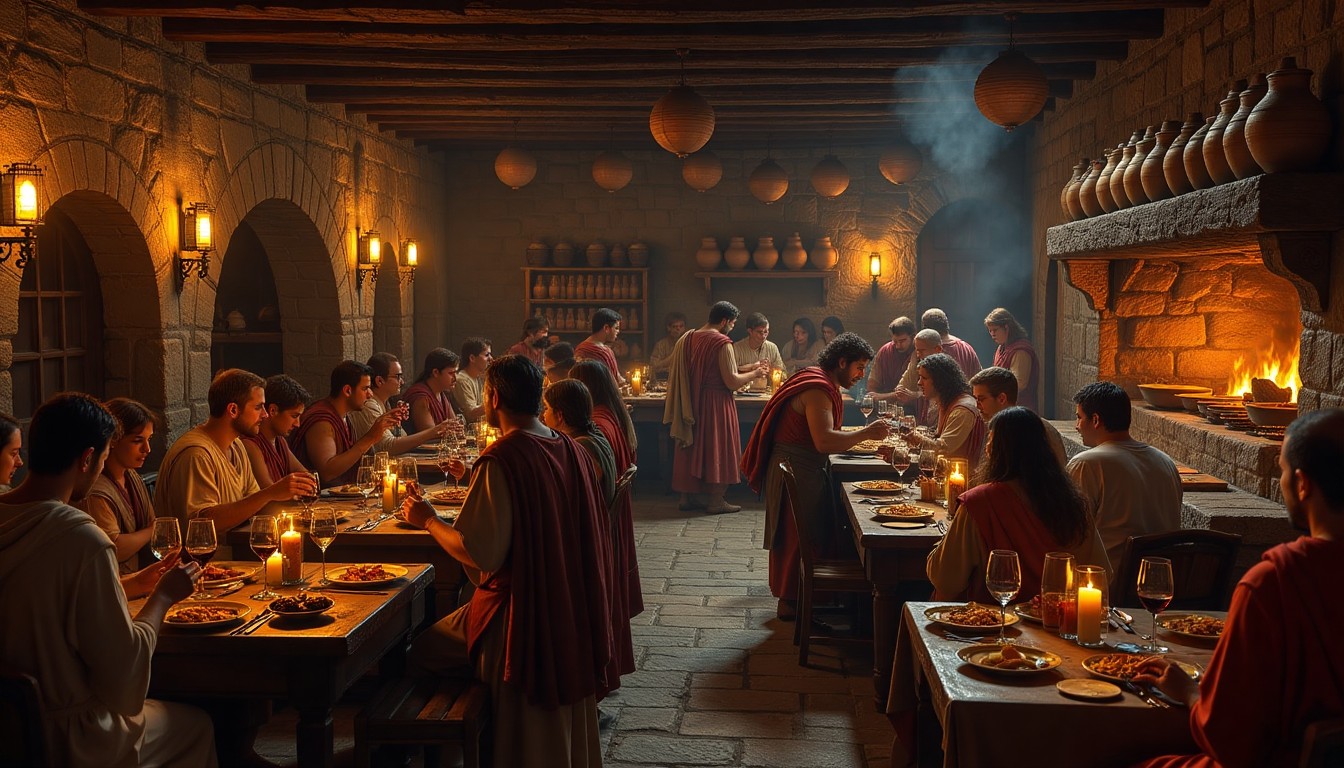Gallery
Discover the authentic Roman world of Vanishing Age.
Each item connects directly to moments in the story - from Nico's deadly spatha to Elly's weather-proof birrus cloak. Click any image to view in detail.
Taberna
Market day brought extra activity as traders set up wooden stalls near the taberna. These Roman shops lined busy streets, their wide openings displaying goods to passersby. The taberna offered everything from tools to textiles, while the rhythmic clanging from Artor’s forge nearby drew curious onlookers to see what he was making.
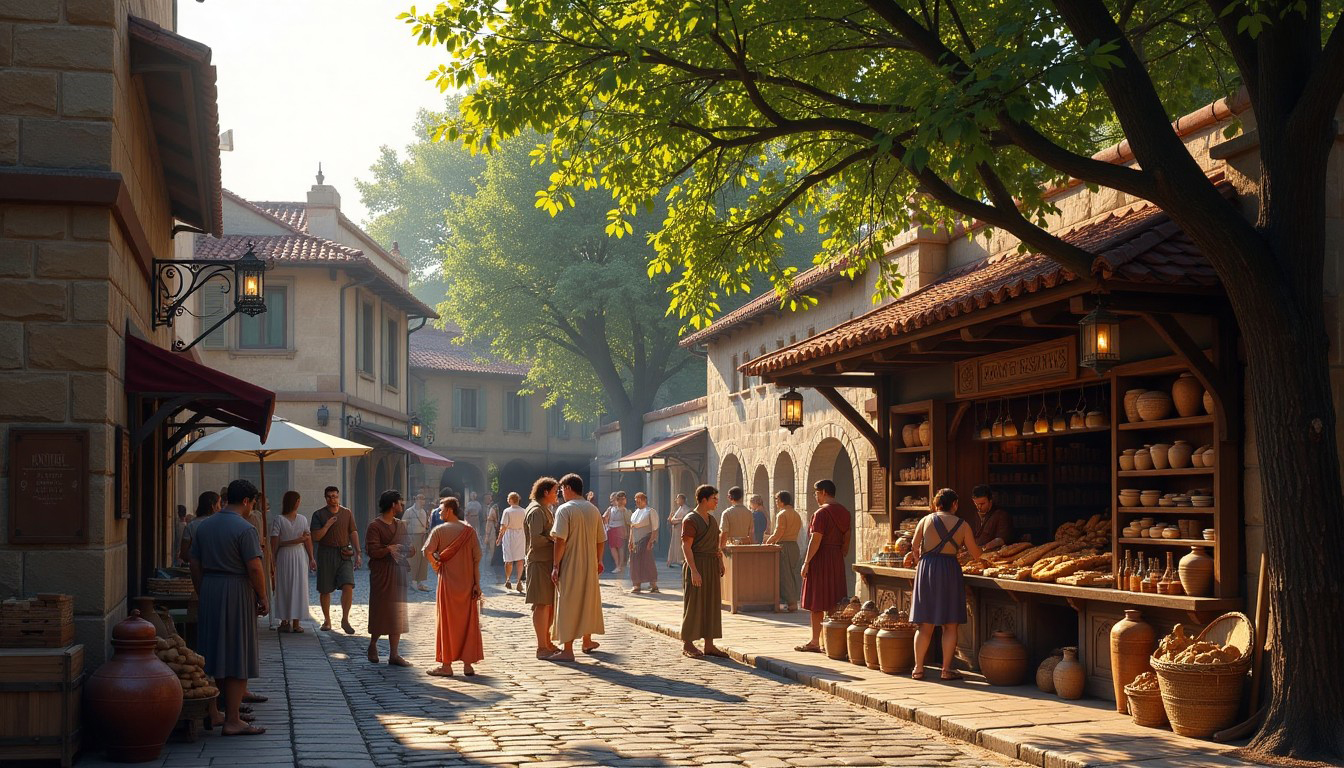
Spatha
When Nico draws his Spatha, enemies step back. This wasn’t the short gladius most Romans knew – the Spatha’s longer reach made it deadly in cavalry hands. Celtic mercenaries brought this weapon to Rome, and by Nico’s time, even infantry had adopted it. The blade was 60-75cm long, perfect for Nico’s superhuman speed.

Gladius
Marcus and Cornelius carried both gladius and spatha when traveling beyond safe territory. The gladius was Rome’s signature sword – short, double-edged, designed for both slashing and thrusting. At just 18-24 inches, it was perfect for close combat. When Elly retrieves Nico’s spare gladius during the raider attack, she feels its unfamiliar weight – a weapon meant for trained hands.

Roman Atrium
The heart of Marcus’s villa featured an elegant peristyle courtyard where family gathered and clients were received. Rather than the traditional atrium found in older Roman homes, Marcus had chosen the more fashionable peristyle design popular among wealthy Romans of his era. The decorative central pool, while inspired by the practical impluvium of traditional atriums, had been transformed into an impressive centrepiece with ornate mosaic borders and deeper construction. It was a stunning display of wealth and sophistication that would leave visiting clients in no doubt of Marcus’s prosperity and refined taste.
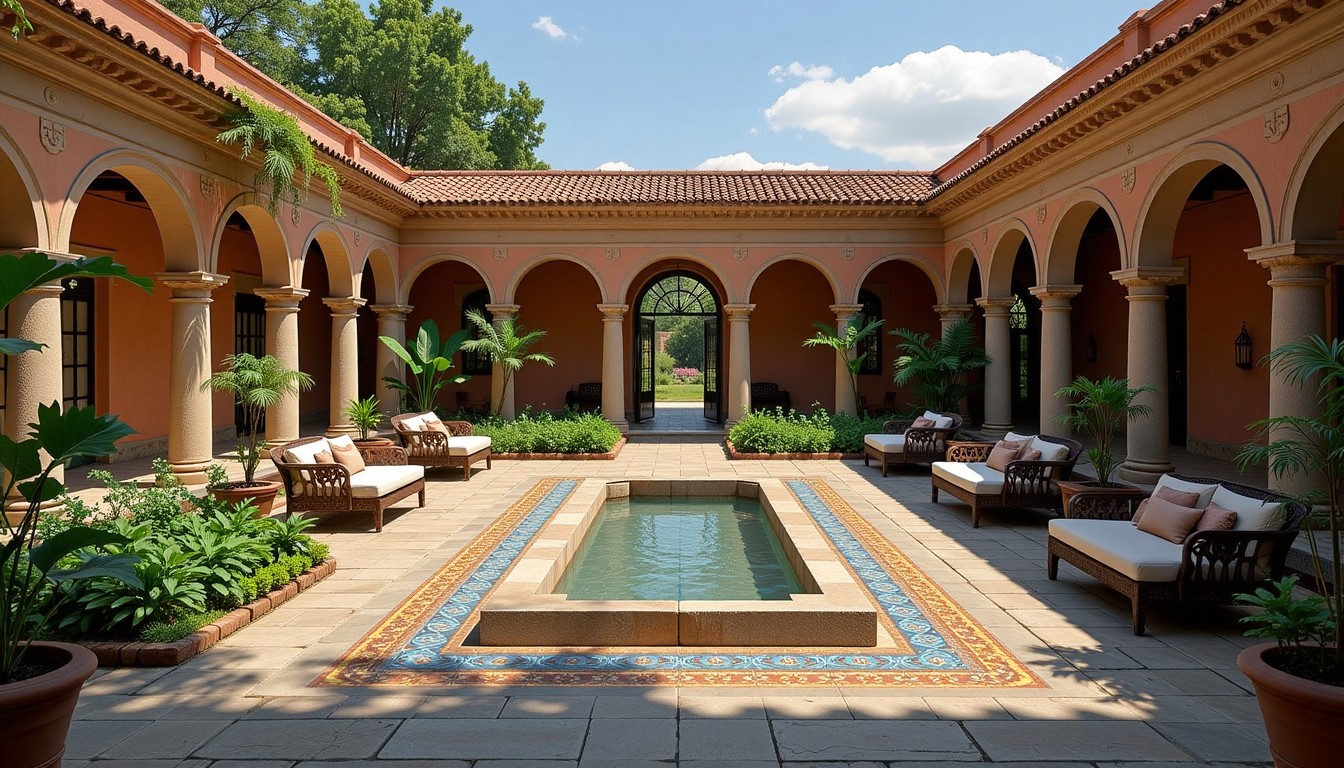
Birrus Britannicus
Elly’s soft blue birrus cloak was more than fashion – it was Britain’s most famous export. Roman ladies across the Empire coveted these weatherproof wool cloaks made from the long, weatherproof wool of British sheep, ancestors of the Cotswold breed. The silver clasp at Elly’s shoulder marked her as wealthy.

Amphora
Clay amphorae lined Marcus’s warehouses, their distinctive pointed bottoms designed to nestle together for efficient shipping. These large storage vessels carried wine from Gaul, olive oil from Spain, and garum fish sauce across the Empire. The handles and narrow necks made them easy to pour and transport, while their clay construction kept contents cool.
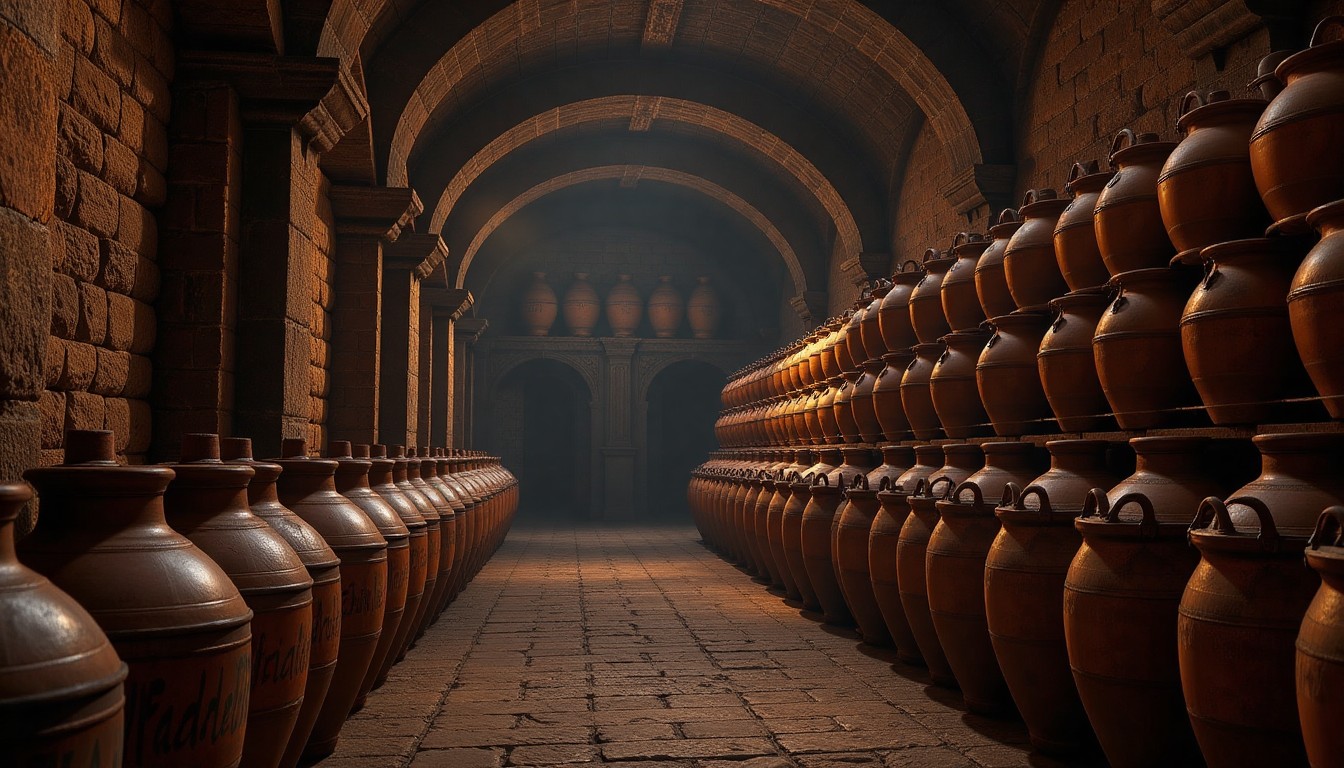
Roman Stola
The long, sleeveless stola distinguished married Roman women from all others. Reaching to the feet, it was worn over a tunic and marked the wearer’s status and respectability. Made from fine materials like wool, linen, or silk for the wealthy, it was a symbol of Roman matron dignity.
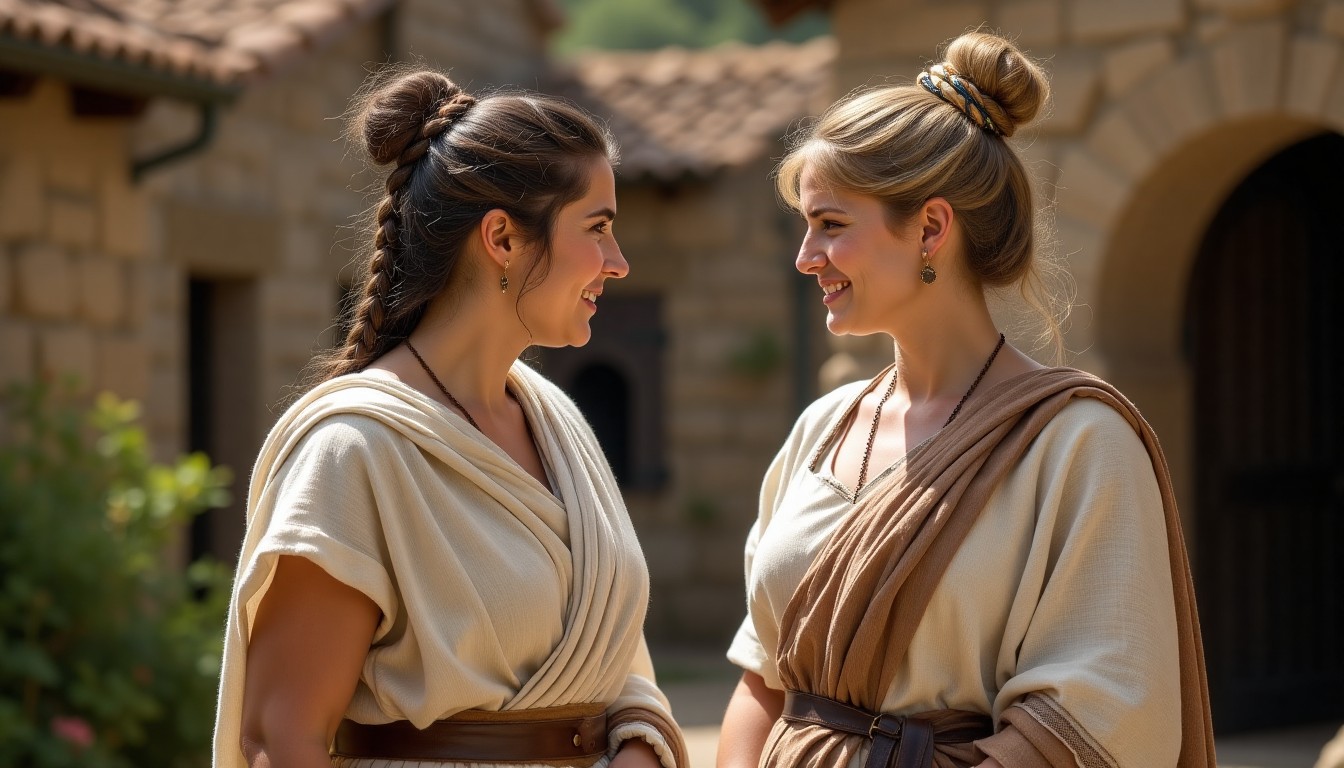
Esseda
The war-chariot that became a luxury vehicle. Caesar first encountered these British chariots in battle, but Romans later adopted them as exotic transport for the wealthy. Later in history, the Esseda evolved from two-wheeled war machine to four-wheeled traveling coach for long journeys.
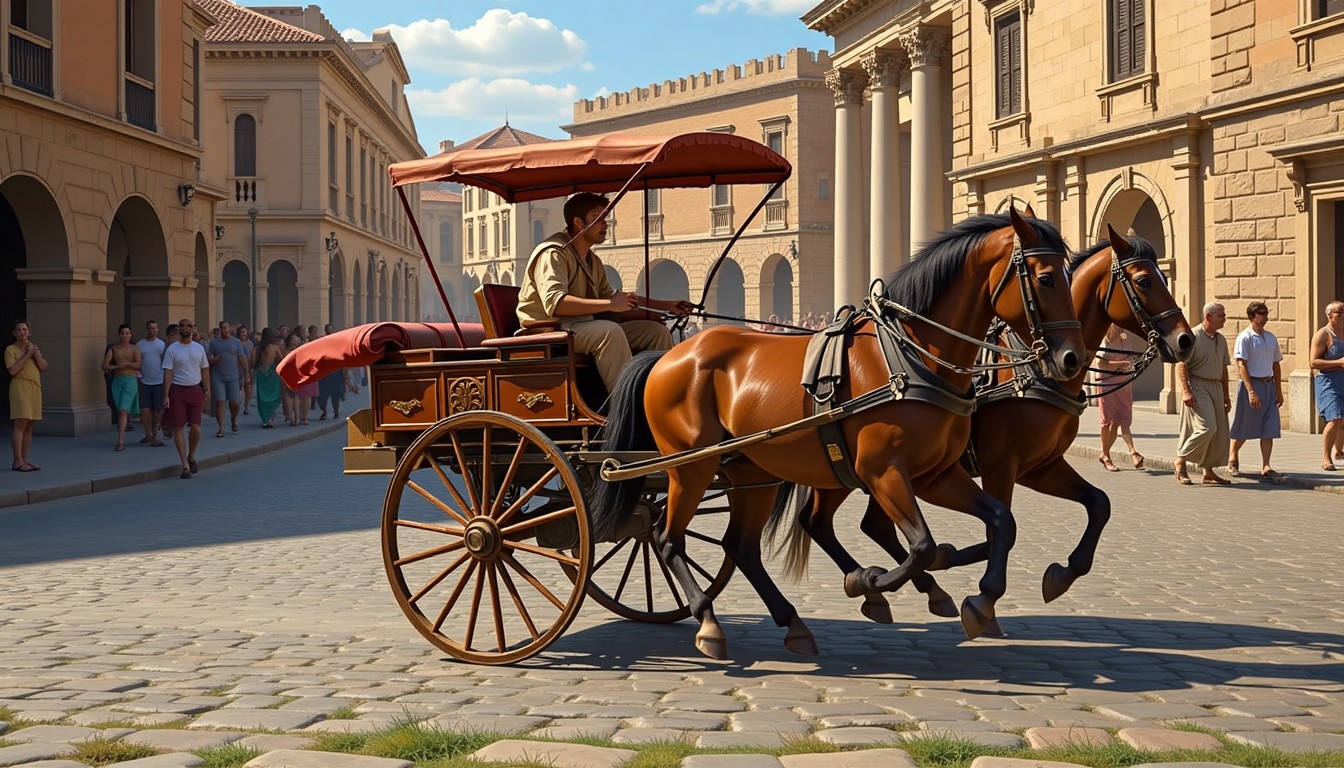
Lacerna
Marcus and Cornelius wore finely crafted Lacerna with hoods against the morning chill when traveling to Camulodunum. This hooded Roman cloak was essential outerwear for men of status, providing warmth and weather protection. Unlike the toga worn in formal settings, the Lacerna was practical travel wear that could be fastened with a brooch at the shoulder.

Roman Palla
A large rectangular cloak worn over tunics or stola, the palla served as both coat and modesty covering for Roman women. Draped in various ways and secured with pins or clasps, it was the essential outer garment for any respectable woman venturing beyond her home.

Popina
At their familiar Popina in Massilia, Elly observed how Nico became more relaxed in this Mediterranean setting. These Roman taverns served hot meals and wine to travellers, their kitchens filling the air with aromatic spices. Unlike simple taberna shops, the Popina was a place to linger over food and conversation.
